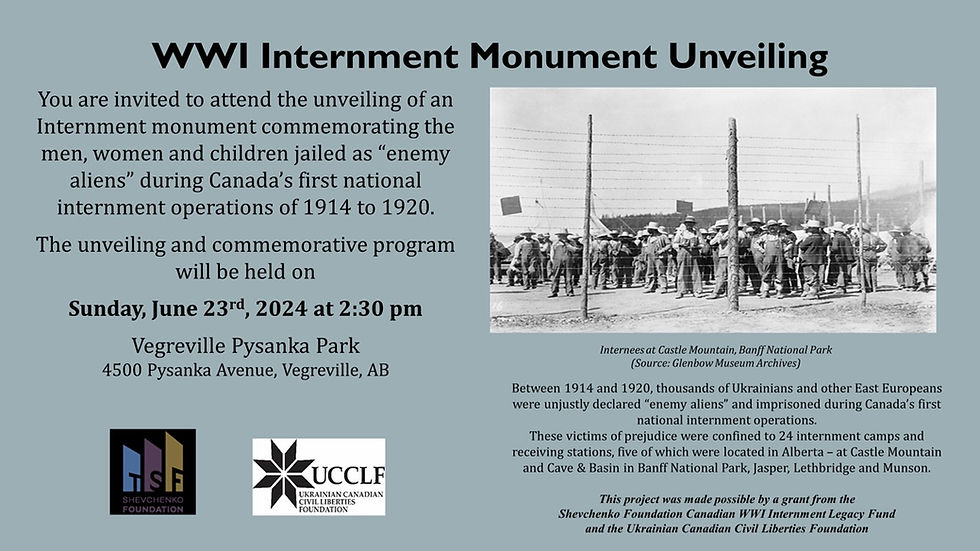Ukrainian Canadian community welcomes Royal assent for Holocaust Monument Bill
- Mar 26, 2011
- 2 min read
For immediate release (Ottawa) - 26 March 2011
OTTAWA— The chairman of the Ukrainian Canadian Civil Liberties Association (UCCLA), Mr. R.W. Zakaluzny, expressed his thanks today to Mr. Tim Uppal, MP, whose private member's bill in the House of Commons has now received Royal Assent. Bill C 442, An Act to Establish a National Holocaust Monument, will commemorate all of the victims of Nazi Germany, including the many millions of Ukrainians enslaved or murdered by the Nazis and the Ukrainian survivors of the Holocaust who made Canada their home.
"Canada welcomed tens of thousands of Ukrainians, Poles, Russians, Jews and others who were persecuted by the Nazis, who lost family members and friends during the Second World War, who saw their homelands devastated by both the Soviet and Nazi regimes, as so thoughtfully underscored in Professor Timothy Snyder's book, Bloodlands," said Mr. Zakaluzny. "Mr. Uppal is to be congratulated for crafting a bill that will ensure that all of the victims of Nazi Germany are remembered, a perspective too often lost when the focus is only on one or another community's suffering. We would also like to congratulate the Canadian Jewish Congress for its determination in moving this legislation forward. We know how hard it can be to get a private member's bill to the stage where it receives Royal Assent. And, of course, we will support a Canadian national monument that, as the CJC's Bernie Farber affirmed, 'will pay homage to the thousands of Holocaust survivors who made Canada their adopted home after the Second World War and contributed in remarkable ways to all aspects of Canadian society [and] honour those who perished, Jews and non-Jews alike.' A genuinely inclusive commemorative project of this sort is one that we will support."



Comments